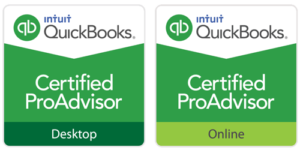At Bennett, Bennett & Trice, we understand that taxes can be a complex and daunting task for small businesses. That’s why we’ve put together this list of 8 tips to help you navigate the tax season and save money.
1. Choose the right business structure.
The first step in minimizing your taxes is to choose the right business structure. There are several different options available, each with its own tax implications. For example, sole proprietorships and partnerships are pass-through entities, which means that the business’s income is taxed on the owners’ personal tax returns. Corporations, on the other hand, are taxed separately from their owners.
2. Keep good records.
This may seem like a no-brainer, but it’s worth repeating. Keeping good records is essential for accurate tax reporting. You should keep track of all of your income and expenses, as well as any other relevant documentation. This will make it much easier to prepare your taxes and avoid any potential audits.
3. Take advantage of deductions and credits.
There are many deductions and credits available to small businesses. By taking advantage of these, you can reduce your taxable income and save money on your taxes. Some of the most common deductions and credits include the following:
- Business expenses: This includes expenses such as rent, utilities, office supplies, and equipment.
- Self-employment taxes: You can deduct half of your self-employment taxes from your taxable income.
- Health insurance premiums: If you provide health insurance for your employees, you can deduct the premiums from your business income.
- Education expenses: If you take courses to improve your business skills, you may be able to deduct the expenses.
4. Pay estimated taxes.
If you expect to owe more than $1,000 in taxes in a given year, you’ll need to pay estimated taxes. This is especially important for small businesses, as they may not have enough withholding from their employees to cover their entire tax liability.
5. Get professional help.
If you’re feeling overwhelmed by the tax process, it’s a good idea to get professional help. An accountant can help you choose the right business structure, keep good records, and take advantage of all the deductions and credits available to you.
6. Stay up-to-date on the latest tax laws.
The tax laws are constantly changing, so it’s important to stay up-to-date. You can do this by reading IRS publications, attending tax workshops, or hiring an accountant who can keep you informed.
7. Don’t wait until the last minute.
The tax deadline is April 15th each year. However, it’s a good idea to start preparing your taxes well in advance. This will give you plenty of time to gather all the necessary documentation and avoid any last-minute surprises.
8. Don’t be afraid to ask for help.
If you have any questions about small business taxes, don’t be afraid to ask for help. The IRS has a toll-free helpline that you can call, or you can consult with an accountant.
We hope these tips help you navigate the tax season and save money. If you have any questions, please don’t hesitate to contact us.










